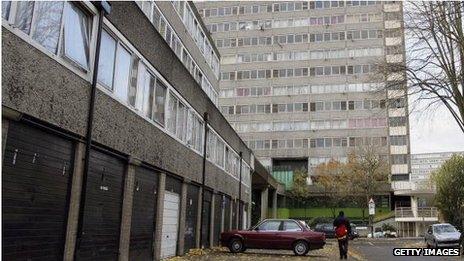How do the housing benefit changes work?
- Published

Half a million council tenants saw their housing benefit cut in April
A change in housing benefit rules, introduced in April 2013, has been dubbed the "bedroom tax" by Labour and, for many, the name has stuck.
Strictly speaking, though, it is not a tax at all.
The government says it is simply removing the "spare room subsidy" which put social sector tenants in a better position than those in the private rental sector.
Ministers argue the changes will encourage people to downsize to smaller properties, and in doing so, help cut the £23bn annual bill for housing benefit, free up living space for overcrowded families, and encourage people to get jobs.
But housing charities have warned that the result will be higher levels of rent arrears and greater homelessness.
The government estimates that over half a million tenants are affected by the new rules, which took effect in April this year.
More than half of those affected have a disability causing them "significant difficulty in one or more areas of the individual's life", .
The government predicts that savings to the taxpayer will amount to £505m in 2013-14, and £540m in the year after.
What has changed?
Who is affected?
How much have people lost?
How many bedrooms are you allowed?
A group of disabled families challenged the rules in the High Court. What was their argument?
Can I keep a spare bedroom?
What about students?
What about lodgers?
Are pensioners exempt?
What is the situation for tenants of private landlords?